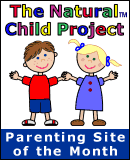|
Dr. Rahul Parikh's article entitled, "Parents, Don't Be Immune to Vaccine Truths" should not have been published by the Los Angeles Times. He begins by painting a grim picture of a child in Mumbai who survives a case of tetanus. Instead of attempting to educate parents, his stated aim, he attempts to frighten them.
We should have long ago moved beyond trying to scare parents into vaccinating and also moved beyond trying to frighten parents into believing that every child getting a vaccine might end up with autism.
But the middle part of his exposition is devoted to a patient of mine and he commits ethics and HIPAA violations so egregious that the Medical Board must take him to task.
Dr. Parikh is a well-published medical author and blogger and he speaks of a patient he saw as an intern in the year 2000 at Cedars-Sinai Medical Center. (His bio on many sites lets you know that year.) He identifies the parents, their unique profession and their child's age and illness. This family can be identified by anyone who can use Google.
They have given me permission to respond to the LA Times article.
What he has done is illegal and unethical and violates the family's and child's privacy.
He wants to scare parents into listening and is willing to break the rules and violate medical confidentiality to do it.
He even identifies me in his story: "We stuck more needles into her tiny veins, and her doctor performed a spinal tap to make sure she didn't have bacterial meningitis." He knows that I'm the only private attending pediatrician who comes to Cedars do spinal taps.
Dr. Parikh then goes on to describe the patient as having whooping cough.
She did not have whooping cough.
Preliminary tests were positive but more definitive tests done later showed that the baby did not have any evidence of exposure to the bacterium that causes whooping cough. This medical writer then goes on to speculate that " . . .if she had only RSV, then she would have gotten better faster than she did, which is what led us to evaluate her further. But that combination -- being very sick and unvaccinated -- had led this child to the edge of respiratory failure . . ."
She was sick, required exactly the same care as a fully-vaccinated child and recovered. She's a healthy happy child.
Again, more efforts to scare than to educate. And a dishonest presentation of the facts. And a serious ethical and legal breach.
Dr. Parikh's discussion of the Larry King television show omits my presence on the show and mischaracterizes what actually occurred. Watch the episode on YouTube.
This is the second time in a matter of a few weeks that this newspaper has presented old news and inaccurate facts as being real news.
Dr. Paul Offit co-held the patent for a vaccine whose rights recently sold for $182 million. He and his book are cited here and often elsewhere as unbiased sources for information. Dr. Offit is an honest researcher but he should not be quoted as a completely disinterested expert.
Dr. Parikh correctly mentions that pediatricians have long been disdainful and dismissive of those of us who disagree with the routine vaccination schedule. The American Academy of Pediatrics has received millions of dollars from the pharmaceutical industry to support everything from the building of our new headquarters to the coffee and doughnuts at our conferences. The industry sponsors our speakers, spends millions on advertising in our official journals and pays for our lunches and dinners. Dr. David Tayloe, the AAP President, is a good man and I sense that he will soon begin reversing this controversial relationship. But, that money has influenced vaccine approval and recommendations and scheduling for decades.
There is no proof that vaccines can cause autism but the evidence needs further research and investigation. The three "vaccine court" cases this year are easily analogized to the early judicial decisions over cigarettes and lung cancer. Again, the proof's not there against vaccines, but dismissing the possibility and the evidence based on a few court cases is bad law, bad science and bad medicine.
No one, no one accuses doctors of being " . . . bent on making profits from vaccines at the expense of children" as Dr. Parikh implies. Drug companies may be motivated very strongly by the profit motive but most of us doctors give vaccines because we truly believe that a child's personal health and the community's health benefit because of these shots. And, yes, I give some shots every day. I just don't give as many of them as are recommended and I vaccinate as late and slowly as I can. Yes, I have considered the public heath implications of this choice. The dangers are grossly over-stated by Dr. Parikh and others.
For the first time in eight years, a child died of HIB bacterial meningitis in Minnesota earlier this year. I responded to a recent LA Times article about vaccines and my first draft included my notes about fatal tree limb accidents: Over 100 people die each year because tree limbs fall on them. The relevance was questioned by my editor (my wife) and therefore omitted. Strange statistically-unlikely things happen. Using them as scary examples in medical articles does not serve the discussion well.
Talk to your doctor but do your own "homework" too. Vaccines are neither unequivocally good nor bad. The way we vaccinate our children now is not as safe as we could make it.
Jay Gordon, MD, Fellow of the American Academy of Pediatrics, FABM, IBCLC Emeritus
|



